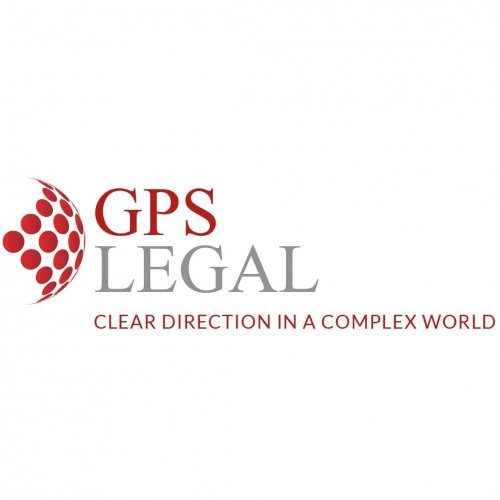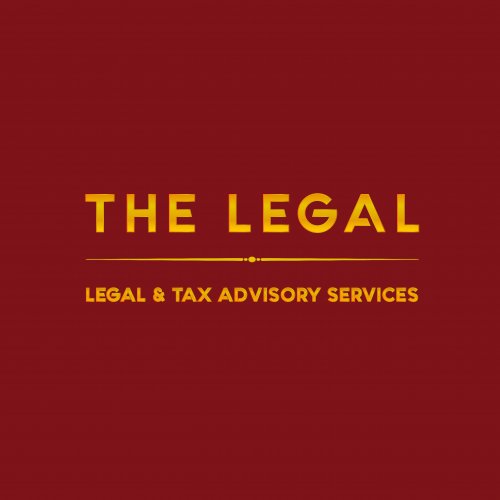Best Cyber Law, Data Privacy and Data Protection Lawyers in Bangkok
Share your needs with us, get contacted by law firms.
Free. Takes 2 min.
List of the best lawyers in Bangkok, Thailand
Legal guides written by Mahanakorn Partners Group Co., Ltd:
- Thailand Strengthens Anti-Money Laundering Laws with New Amendments
- Recent Updates to Thailand’s Long-Term Resident (LTR) Visa and SMART Visa Programs
- Managing Risks in Public-Private Partnership Projects
Legal guides written by GPS Legal:
- Thailand’s SMART Visa program: What you should know
- Estate planning goes beyond wills
- Buying a condo in Thailand as a foreigner
Thailand Cyber Law, Data Privacy and Data Protection Legal Articles
Browse our 1 legal article about Cyber Law, Data Privacy and Data Protection in Thailand written by expert lawyers.
- Understanding Data Privacy Laws in Thailand, Our 2024 Update
- Reflecting a worldwide trend toward tighter data governance, Thailand has made notable progress in controlling data privacy and protection in recent years. After eventually coming into effect in 2022, having been delayed mostly due to the COVID-19 Pandemic, the Personal Data Protection Act (PDPA) 2019 represented a significant turning point... Read more →
About Cyber Law, Data Privacy and Data Protection Law in Bangkok, Thailand
Cyber law in Bangkok, Thailand, encompasses the legal issues related to the use of information technology and the internet. It covers a range of areas including data protection, privacy rights, and security breaches. In response to the global increase in cyber-related activities and concerns, Thailand has developed laws to safeguard digital interactions and personal data. The Personal Data Protection Act (PDPA), which came into effect in 2019 and was fully enforced in 2021, is the primary legislation governing data protection and privacy in Thailand. It aligns with international standards, such as the GDPR, to ensure the security and confidentiality of personal data.
Why You May Need a Lawyer
Legal representation can be crucial in various situations involving cyber law, data privacy, and data protection. You may need a lawyer if you suspect a data breach affecting your business, face allegations of data mismanagement, require guidance on compliance with the PDPA, or need to draft contracts with data protection clauses. Additionally, individuals might seek legal advice if they believe their personal data has been mishandled or if they have become victims of cybercrime, such as identity theft or online fraud.
Local Laws Overview
In Bangkok, key legislation pertaining to cyber law, data privacy, and data protection includes the Personal Data Protection Act (PDPA), Computer Crime Act, and Electronic Transactions Act. The PDPA emphasizes the lawful collection, use, and disclosure of personal data. It mandates data controllers to implement measures to safeguard personal data and establishes rights for data subjects to access and correct their data. The Computer Crime Act addresses cybersecurity and penalizes illegal access to computer systems. The Electronic Transactions Act facilitates the legal recognition of electronic signatures and contracts.
Frequently Asked Questions
What is the Personal Data Protection Act (PDPA) in Thailand?
The PDPA is a legal framework established to protect personal data and ensure privacy rights in Thailand. It regulates the collection, use, processing, and disclosure of personal information.
Who is considered a data controller under the PDPA?
A data controller is any person or entity responsible for determining the purposes and means of processing personal data. This could include businesses, organizations, or government agencies.
What rights do data subjects have under the PDPA?
Data subjects have several rights, including the right to access their data, request a copy, correct erroneous data, and request the deletion of their data under certain conditions.
What actions are considered cybercrimes under Thai law?
Cybercrimes under Thai law include unauthorized access to computer systems, introducing malware, data theft, and conducting illegal online financial transactions.
Are there penalties for non-compliance with the PDPA?
Yes, non-compliance with the PDPA can result in significant fines, criminal penalties, and potential imprisonment for serious offenses.
Do foreign companies operating in Thailand have to comply with the PDPA?
Foreign companies that process personal data of individuals located in Thailand are required to comply with the PDPA, irrespective of their physical presence in the country.
How can businesses in Thailand ensure compliance with the PDPA?
Businesses should implement data protection policies, conduct regular data audits, train employees on data privacy, and appoint a data protection officer to oversee compliance efforts.
What is considered personal data under the PDPA?
Personal data is any information that can identify an individual, directly or indirectly, such as names, addresses, contact details, and identification numbers.
Is consent always required to collect personal data?
Consent is a primary basis for data collection, but there are other lawful bases under the PDPA, such as contractual necessity or compliance with legal obligations.
How can individuals report a data breach in Thailand?
Individuals can report a data breach to the Office of the Personal Data Protection Commission or contact law enforcement authorities if they suspect illegal activities.
Additional Resources
For further guidance and information on cyber law, data privacy, and data protection in Bangkok, Thailand, consider contacting the following organizations: the Office of the Personal Data Protection Commission, the Ministry of Digital Economy and Society, the Electronic Transactions Development Agency, or local law firms specializing in technology law. These bodies can provide valuable resources and assistance.
Next Steps
If you need legal assistance in the realm of cyber law, data privacy, and data protection, it is advisable to consult with a qualified lawyer who specializes in these areas. Prepare a list of your concerns and any relevant documentation before your consultation. Additionally, familiarize yourself with the basic requirements of the PDPA and related laws to frame your queries effectively. Legal professionals can help navigate complex regulations, ensure compliance, and represent your interests in any legal proceedings.
Lawzana helps you find the best lawyers and law firms in Bangkok through a curated and pre-screened list of qualified legal professionals. Our platform offers rankings and detailed profiles of attorneys and law firms, allowing you to compare based on practice areas, including Cyber Law, Data Privacy and Data Protection, experience, and client feedback.
Each profile includes a description of the firm's areas of practice, client reviews, team members and partners, year of establishment, spoken languages, office locations, contact information, social media presence, and any published articles or resources. Most firms on our platform speak English and are experienced in both local and international legal matters.
Get a quote from top-rated law firms in Bangkok, Thailand — quickly, securely, and without unnecessary hassle.
Disclaimer:
The information provided on this page is for general informational purposes only and does not constitute legal advice. While we strive to ensure the accuracy and relevance of the content, legal information may change over time, and interpretations of the law can vary. You should always consult with a qualified legal professional for advice specific to your situation.
We disclaim all liability for actions taken or not taken based on the content of this page. If you believe any information is incorrect or outdated, please contact us, and we will review and update it where appropriate.

















